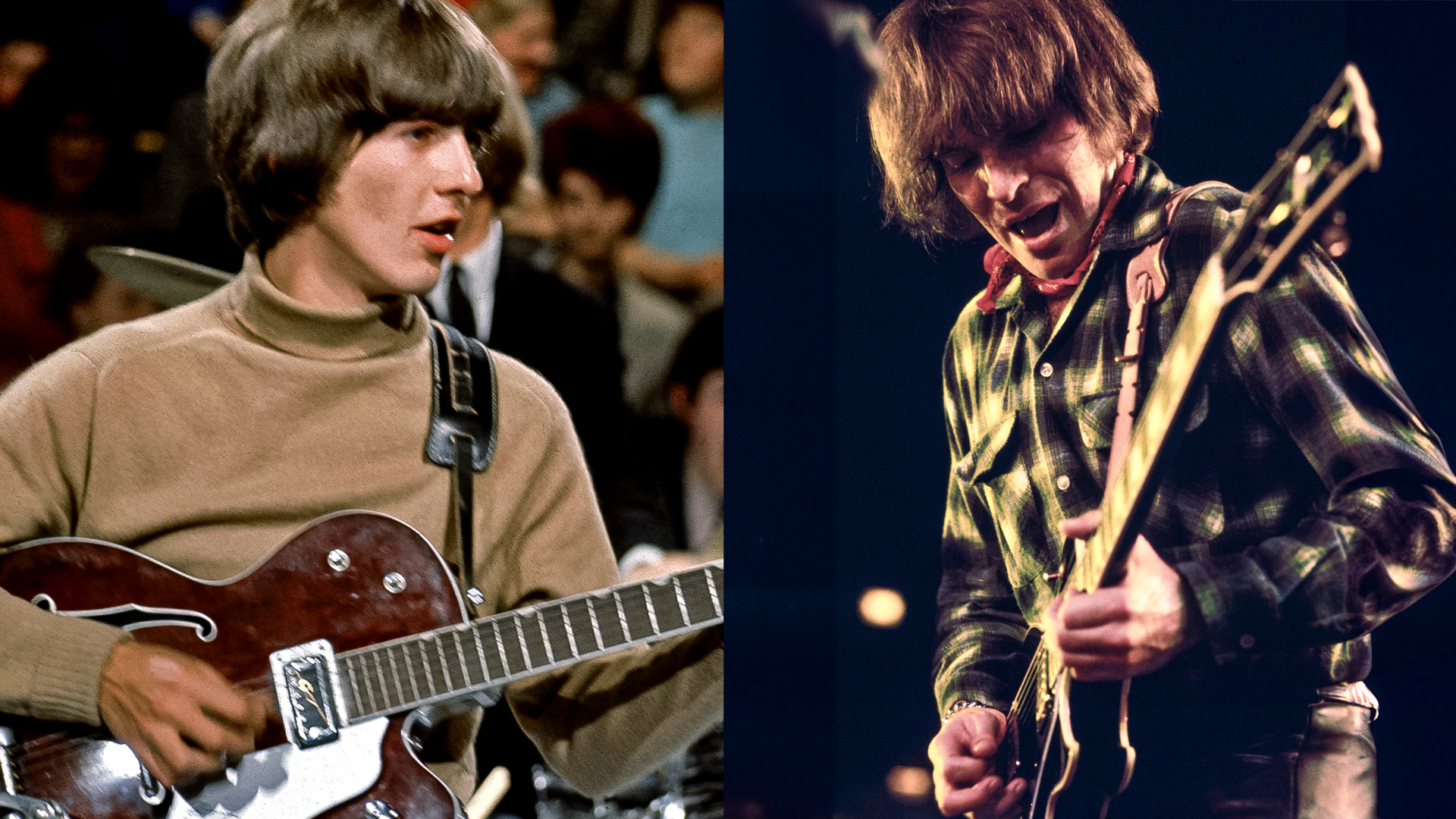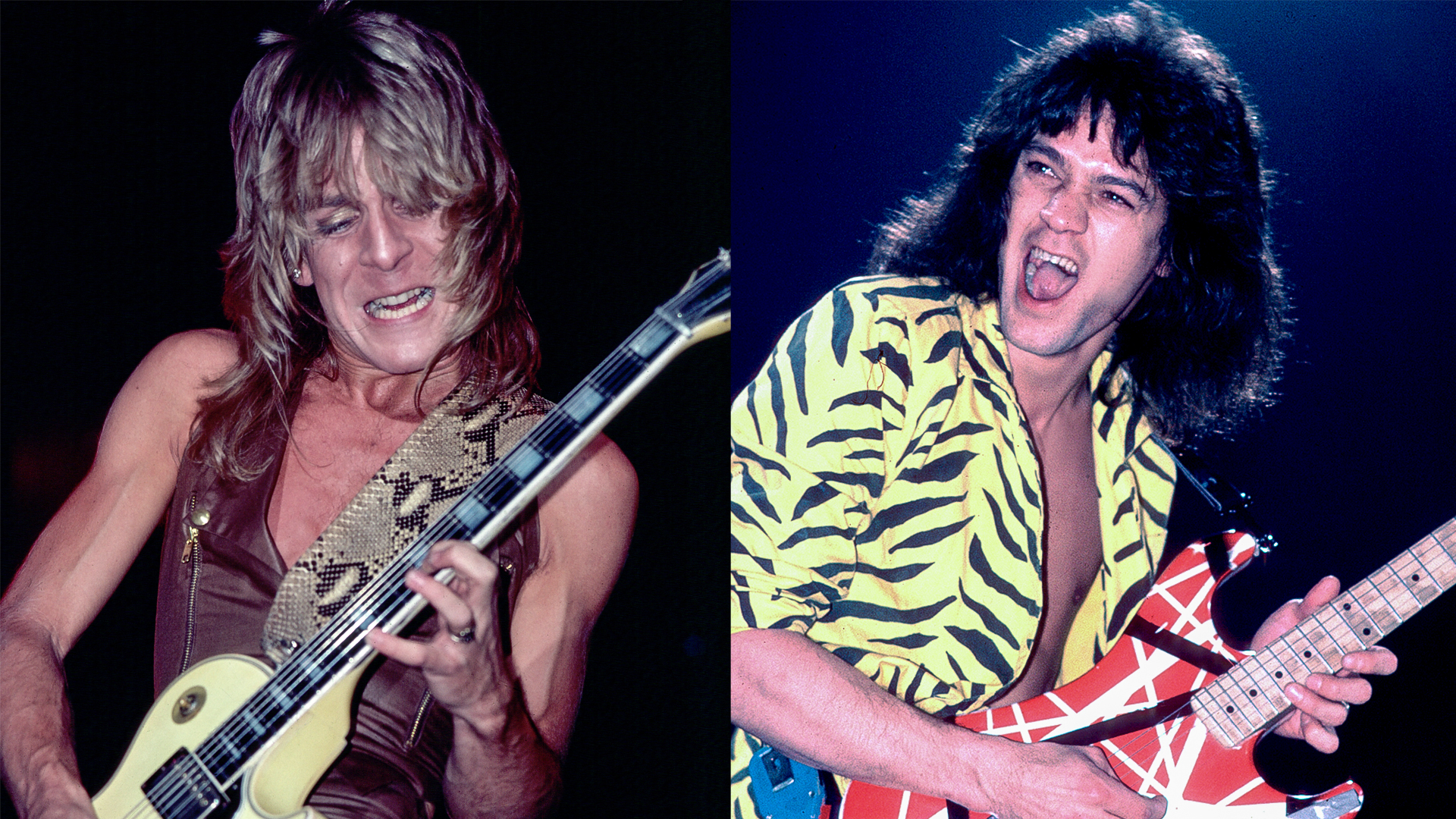“The band was the Beatles, and he was talking about me and Creedence. Those words have just stuck with me.” John Fogerty on the compliment he received from George Harrison when they both performed with Bob Dylan
The former Beatle's confidence booster came at an important time in Fogerty's career

All the latest guitar news, interviews, lessons, reviews, deals and more, direct to your inbox!
You are now subscribed
Your newsletter sign-up was successful
John Fogerty is an icon of 1960s rock and roll, a songwriting powerhouse with numerous hits to his name. But that doesn’t mean he doesn’t get starry eyed when it comes to meeting some of his peers.
As Fogerty recently explained, he had a chance to perform with Bob Dylan and George Harrison at a Taj Mahal concert in 1987. Mahal was playing at the Palomino in Los Angeles when he called each of the guitar heroes onto the stage. That night’s spontaneous grouping led Fogerty to play one of his Creedence Clearwater Revival hits — “Proud Mary” — for the first time in years.
“[Dylan] turns to me and he goes, ‘John, if you don’t play ‘Proud Mary,’ everybody’s gonna think it’s a Tina Turner song,’” Fogerty recalled.
But as the 80-year-old rocker recently revealed to Stephen Colbert, that night also brought him a compliment from Harrison. The two had met a month or two earlier at Warner Bros., the label to which they were each signed at the time. (Harrison’s Dark Horse label was a subsidiary of Warner.)
“I had gone to this club called the Palomino in Los Angeles to see Taj Mahal and I got inside, and the word was kind of spreading that George Harrison was there,” Fogerty tells Colbert. “And I found this little cloak room. He seemed to be hiding. I came in and I said, ‘Hey, George!’
“And we got to chatting — because he was, you know, he was so famous, he just couldn't go anywhere without being beseeched.
“We're talking away, and then suddenly George says, ‘The band really loved Creedence.’”
All the latest guitar news, interviews, lessons, reviews, deals and more, direct to your inbox!
“Where are you going to go with that? The band was the Beatles, and he was talking about me and Creedence. And those words have just stuck with me.”
The Beatles‘ admiration for Fogerty was first revealed by John Lennon in his extensive 1970 interview with Rolling Stone.
“I like Creedence Clearwater,” Lennon said, “They make beautiful Clearwater music — they make good rock ‘n’ roll music.”
Fogerty’s night at the Palomino was a turning point in his career. At the time he had successfully relaunched himself as a solo artist with his 1985 album, Centerfield. He subsequently, and rather bizarrely, found himself being sued by his former label — and the owner of his back catalog — for sounding too much like himself.
As a result, he refused to play Creedence hits, like “Fortunate Son” and “Have You Ever Seen the Rain.” Dylan’s push for him to perform “Proud Mary” reminded Fogerty of the joy he got from his old tunes.
It would take many years and the repurchasing of his catalog — not to mention the reacquisition of the Fireglo Rickenbacker 325 semi-hollow electric guitar with which he’d written and recorded many of those tunes — before he would decide to make his first new album in many years: Legacy — The Creedence Clearwater Revival Years, a 20-track effort that features re-creations of his classic tracks.
Elizabeth Swann is a devoted follower of prog-folk and has reported on the scene from far-flung places around the globe for Prog, Wired and Popular Mechanics She treasures her collection of rare live Bert Jansch and John Renbourn reel-to-reel recordings and souvenir teaspoons collected from her travels through the Appalachians. When she’s not leaning over her Stella 12-string acoustic, she’s probably bent over her workbench with a soldering iron, modding gear.
